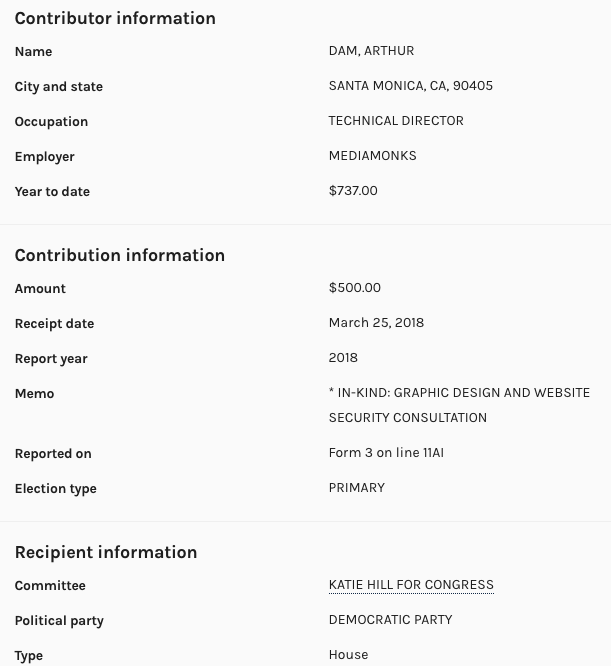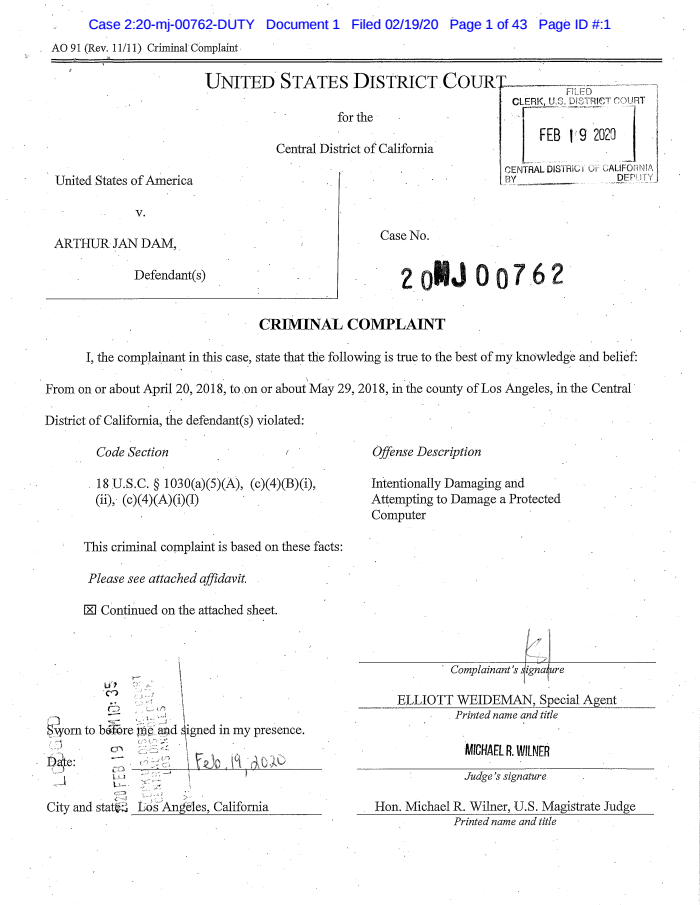FEDERAL AGENTS HAVE arrested Arthur Dam in connection with a hacking spree that disrupted the 2018 Democratic California primary that ultimately nominated Katie Hill, according to a new criminal complaint.
Dam, in the criminal complaint, is linked directly to the Hill campaign. Hill won the general election in California’s 25th District and then later resigned from Congress amid controversy.
“Dam was found to be connected to the cyber attacks through subscriber information, IP addresses, geolocation history, and open sources, including through his employer and his wife, K.O., who worked for one of the Victim’s opponents,” the complaint reads.
Dam’s wife is Kelsey O’Hara, Hill’s fundraiser during the campaign and her district director after she won office. O’Hara was also the subject of a sexual remark made by Hill and caught on tape by Vice News in 2018. In Hill’s Federal Election Commission records, she lists a $500 in-kind contribution from Dam on March 25, 2018, for “graphic design and website security consultation.”
NEWS: FBI arrests hacker linked to Katie Hill campaign interc.pt/39LWy4q by me
Arthur Dam, arrested by the FBI, listed a $500 in-kind contribution to Hill's campaign in March 2018 for "graphic design and website security consultation."
35 people are talking about this
During the campaign, the websites of Hill’s opponents, Democrats Jess Phoenix and Bryan Caforio, who was supported by Justice Democrats, were both attacked, though Hill’s never was, raising suspicions at the time that Hill’s campaign was behind them. One major attack on Caforio’s campaign website came at a crucial moment, just an hour before the biggest debate of the primary, the complaint notes. Hill eventually won the California primary by fewer than 3,000 votes.
Hill’s campaign was the subject of unusual national attention during her campaign, including a Vice News documentary and a Rolling Stone article. On March 3, the 25th Congressional District will hold a special election to replace Hill, who resigned in October 2019.
WAIT! BEFORE YOU GO on about your day, ask yourself: How likely is it that the story you just read would have been produced by a different news outlet if The Intercept hadn’t done it?
Consider what the world of media would look like without The Intercept. Who would hold party elites accountable to the values they proclaim to have? How many covert wars, miscarriages of justice, and dystopian technologies would remain hidden if our reporters weren’t on the beat?
The kind of reporting we do is essential to democracy, but it is not easy, cheap, or profitable. The Intercept is an independent nonprofit news outlet. We don’t have ads, so we depend on our members — 35,000 and counting — to help us hold the powerful to account. Joining is simple and doesn’t need to cost a lot: You can become a sustaining member for as little as $3 or $5 a month. That’s all it takes to support the journalism you rely on.Become a Member







No comments:
Post a Comment